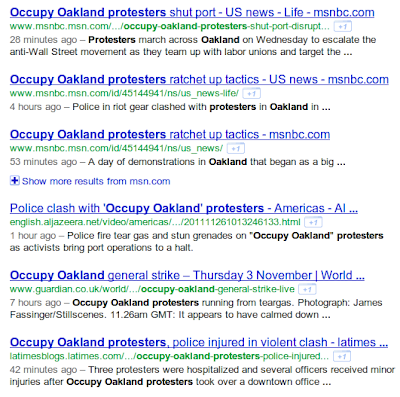 ‘ );
‘ );
h3_html = ‘
‘+cat_head_params.sponsor.headline+’
‘;
cta = ‘‘+cat_head_params.cta_text.text+’→‘
atext = ‘
‘+cat_head_params.sponsor_text+’
‘;
scdetails = scheader.getElementsByClassName( ‘scdetails’ );
sappendHtml( scdetails[0], h3_html );
sappendHtml( scdetails[0], atext );
sappendHtml( scdetails[0], cta );
// logo
sappendHtml( scheader, ” );
sc_logo = scheader.getElementsByClassName( ‘sc-logo’ );
logo_html = ”;
sappendHtml( sc_logo[0], logo_html );
sappendHtml( scheader, ” );
if(“undefined”!=typeof __gaTracker){
__gaTracker(‘create’, ‘UA-1465708-12’, ‘auto’, ‘tkTracker’);
__gaTracker(‘tkTracker.set’, ‘dimension1’, window.location.href );
__gaTracker(‘tkTracker.set’, ‘dimension2’, ‘ask-an-seo’ );
__gaTracker(‘tkTracker.set’, ‘contentGroup1’, ‘ask-an-seo’ );
__gaTracker(‘tkTracker.send’, { ‘hitType’: ‘pageview’, ‘page’: cat_head_params.logo_url, ‘title’: cat_head_params.sponsor.headline, ‘sessionControl’: ‘start’ });
slinks = scheader.getElementsByTagName( “a” );
sadd_event( slinks, ‘click’, spons_track );
}
} // endif cat_head_params.sponsor_logo
Editor’s note: “Ask an SEO” is a weekly column by technical SEO experts Jenny Halasz and Kristine Schachinger. Come up with your hardest SEO question and fill out our form. You might see your answer in the next #AskanSEO post!
Welcome to another edition of Ask an SEO! A reader asks:
Would it help my SEO, if instead of creating 1 piece of content, I create 3 pieces of content, which swap out every 30 days for a page. This way the freshness index of my page stays up. Or is writing so much content too much effort for a minimal SEO increase in value?
Simply, does “freshness” affect rankings?
This is not a simple yes or no answer, as in most things SEO, it depends.
In this particular situation, I would not write three pieces of content and then change the single page on a monthly basis. This does not meet the freshness requirement, anyway.
Google is trying to understand what your webpage is about topically. If you’re changing that regularly, then it would more likely do more harm than good.
So what does freshness mean?
Query Deserves Freshness (QDF)
In 2011, on the heels of the Caffeine Update that allowed Google to crawl and index the web more quickly, Google released a change to the search results that would favor, in some use cases, fresh content over more traditional “evergreen” pages.
This is known as QDF, or “Query Deserves Freshness”.
“Different searches have different freshness needs. This algorithmic improvement is designed to better understand how to differentiate between these kinds of searches and the level of freshness you need, and make sure you get the most up to the minute answers.”
Since then QDF has become one of the most misunderstood portions of Google’s algorithms.
My new clients often tell me they were told by their last SEO that they needed to change their content and homepage frequently so Google would rank it better.
But this is not true.
While there are query terms where Google will serve more “fresh results” first over older content, this is vertical and use case-specific.
QDF does not always matter.
So how do we know when it does?
When QDF Matters
QDF was never meant to be applied to all searches. Even when it rolled out, it affected only about 30% of queries.
For example, your recipe site with your great grandma’s spaghetti sauce doesn’t need to be updated regularly, if at all.
No one needs to change a page outlining Einstein’s Theory of Relativity on a daily, weekly, or ever basis.
Some kinds of content are just meant to stick, or be “evergreen.”
Then, of course, some queries are not.
Google outlines these in its original blog post. They are based on the following criteria.
- Recent events or hot topics. For recent events or hot topics that begin trending on the web, you want to find the latest information immediately. Now when you search for current events like [occupy oakland protest], or for the latest news about the [nba lockout], you’ll see more high-quality pages that might only be minutes old.

- Regularly recurring events. Some events take place on a regularly recurring basis, such as annual conferences like [ICALP] or an event like the [presidential election]. Without specifying with your keywords, it’s implied that you expect to see the most recent event, and not one from 50 years ago. There are also things that recur more frequently, so now when you’re searching for the latest [NFL scores], [dancing with the stars] results or [exxon earnings], you’ll see the latest information.
- Frequent updates. There are also searches for information that changes often, but isn’t really a hot topic or a recurring event. For example, if you’re researching the [best slr cameras], or you’re in the market for a new car and want [subaru impreza reviews], you probably want the most up to date information.
You can also add the new schema categorizations for jobs and events to the list of items that would fall under QDF.
QDF Was Meant for Queries Related to Time-Sensitive Searches
As we can see, these time-sensitive searches can be something as obvious as news or products in an ecommerce site, to what is trending in Google, to a simple yearly product review site.
When trying to determine whether your query term needs fresh content, ask yourself:
- Has anything changed today?
- Will it change tomorrow or next year?
If the answer is yes, then you will want to add new content and a change any category hub pages leading into it on a regular basis in a timeframe that corresponds with the change.
For instance, if you published a list of all SEO conferences in the U.S. for this year, that list would likely only change when new conferences were added or when the year ended.
However, this does not mean you should be changing an existing page just for the sake of change.
For instance, if I have a page for “SEO Conferences in the U.S. for 2018”, I don’t want to replace it with an “SEO Conferences in the U.S. for 2019” page.
I would want to add a new page with the new reviews with a focus on the new year.
Why?
Here are just a few reasons:
- The old page likely has built up some link equity that will not automatically be applied to the new content. If the content diverges too far from the topical relevancy of the inbound links, Google may ignore those links and your site will lose that link value.
- You might have users that find the older content useful. You would not want to remove the page simply because it was from last year.
- You might weaken your site’s topical relevancy for a particular subject if every time you had new content you just replaced an existing page’s content. Having 20 pages of U.S. SEO Conferences versus one page you just keep changing will result in a significant difference in how Google sees your site’s topical strength for that item.
Now, if you have 10 years of conferences listed, you may want to archive or deindex older content, but that would be based on a site by site basis. In some cases, old content can be resurfaced and become beneficial.
One publisher site I worked on had a 10-year-old old article suddenly become trending.
It was a piece on the Zodiac Killer. When the movie “Zodiac” came out, it was ranking well and users started visiting it all over again.
Be careful not to remove content simply for the sake of removals. You could remove important and useful evergreen pieces.
Summary
Yes, QDF matters. But not always. And not for all sites.
However, when your content or site needs to be fresh, create new content.
Don’t simply replace old pages with new text unless it is truly an update to that content.
Create new ones.
More Resources:
- Google Freshness Algorithm: Everything You Need to Know
- How Why You Must Improve or Remove Your Old Content
- 5 Ways to Generate Fresh, Intriguing Audience-Targeted Content Ideas
Featured Image Credit: Paulo Bobita
Article source: https://www.searchenginejournal.com/swapping-fresh-content-seo/317195/

